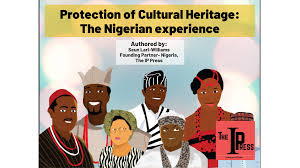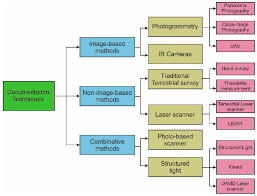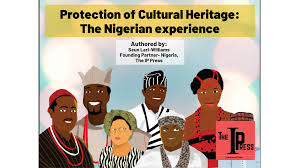

Unlocking Nigeria’s Legacy: Powerful Legal Considerations For Successful Heritage Conservation Projects
Introduction
Heritage Conservation Law In Nigeria;
Heritage conservation is an essential aspect of preserving Nigeria’s rich cultural and historical legacy. As the country continues to grow and modernize, safeguarding its historical sites and buildings becomes increasingly important. This article delves into the legal considerations for heritage conservation projects in Nigeria, highlighting the crucial regulations, policies, and legal frameworks that play a pivotal role in protecting the nation’s cultural heritage.
Nigeria’s rich tapestry of cultural, historical, and architectural treasures represents a legacy that spans centuries. From the ancient Nok Terracotta to the prestigious Benin Kingdom artifacts, and from the Sukur Cultural Landscape to the Osun-Osogbo Sacred Grove, the country boasts an extraordinary range of tangible and intangible heritage assets. Preserving this legacy isn’t just about honoring the past — it is also about protecting a valuable national resource that holds economic, educational, and identity-forming potential for current and future generations.
However, heritage conservation in Nigeria is not merely a cultural exercise; it is a heavily regulated and legally-sensitive endeavor. Legal considerations for heritage conservation projects are crucial for ensuring that restoration, preservation, and rehabilitation efforts align with both national and international legal frameworks. Understanding these considerations helps prevent unintentional violations, encourages sustainable development, and reinforces the legitimacy and effectiveness of conservation initiatives.
Unfortunately, despite Nigeria’s rich historical legacy, heritage conservation has often been neglected, underfunded, and plagued by legal ambiguity. Many culturally significant sites fall into disrepair due to unregulated development, land acquisition pressures, and insufficient legal protection. The lack of robust legislative enforcement mechanisms, coupled with limited public awareness and political will, undermines the conservation agenda and leaves heritage projects vulnerable to degradation or exploitation.
The legal framework for heritage conservation in Nigeria is shaped by a blend of constitutional provisions, environmental laws, land use regulations, and specialized legislation such as the National Commission for Museums and Monuments (NCMM) Act. The NCMM is the statutory body responsible for the registration, regulation, and preservation of national monuments and museums. However, the current legislation, originally derived from colonial laws, is often seen as outdated and ill-equipped to meet the evolving needs of modern conservation practices.
At the core of heritage conservation law lies the need for a multi-stakeholder approach. Legal considerations must address the roles and rights of government institutions, private developers, host communities, and international bodies such as UNESCO. Each of these stakeholders has an interest in the outcome of heritage projects — whether for cultural pride, economic development, tourism, or spiritual continuity. The challenge lies in balancing these interests through enforceable legal provisions that also reflect cultural sensitivities and promote inclusivity.
One of the foremost legal concerns is ownership. Who owns heritage sites? Can private landowners be compelled to relinquish or protect properties of historical significance? In Nigeria, the Land Use Act vests land ownership in the state, but the operationalization of that control — particularly regarding ancestral or community lands — introduces layers of complexity. Conservation projects must therefore navigate questions of legal title, compensation, access rights, and traditional ownership to avoid conflicts.
Environmental impact assessments (EIAs) also form a crucial legal component of heritage conservation. Projects must be evaluated for their potential impact on the surrounding environment, not just in terms of flora and fauna, but also on historical structures and cultural practices. Unfortunately, EIAs are often circumvented or poorly conducted in Nigeria, leading to irreversible damage to heritage sites.
Further complicating the legal landscape is the overlap between different regulatory bodies. Agencies such as the Federal Ministry of Environment, state urban planning authorities, and local government councils often have concurrent jurisdiction over the same geographical areas. This multiplicity can result in conflicting mandates, bureaucratic delays, and legal uncertainty — all of which can derail well-intentioned conservation projects.
In addition, Nigeria’s obligations under international treaties and conventions cannot be overlooked. As a signatory to the UNESCO World Heritage Convention, Nigeria is legally bound to safeguard its designated sites in line with global best practices. Failure to adhere to these commitments may lead to sanctions or delisting of sites — a scenario that can damage the country’s reputation and tourism potential.
Therefore, legal considerations for heritage conservation projects must go beyond statutory compliance. They must incorporate proactive planning, transparent stakeholder engagement, and periodic legal audits to ensure alignment with evolving norms. Developers, NGOs, legal practitioners, and policymakers must work collaboratively to develop legal strategies that respect heritage while enabling development.
As Nigeria moves towards becoming a globally recognized cultural and economic hub, legal structures that protect and empower heritage conservation projects will play a pivotal role in defining its national identity. Through robust legal considerations, Nigeria can transform its historical sites from endangered relics into thriving symbols of pride, prosperity, and posterity.
Understanding Heritage Conservation
Heritage conservation involves the preservation, protection, and management of cultural sites, artifacts, and buildings of historical significance. In Nigeria, this includes colonial-era architecture, ancient monuments, traditional structures, and archaeological sites. Effective conservation not only maintains these sites for future generations but also promotes cultural identity and supports tourism.
Legal Framework for Heritage Conservation in Nigeria
Nigeria’s approach to heritage conservation is guided by a combination of international agreements, national laws, and local regulations. Understanding these legal frameworks is crucial for the successful implementation of heritage conservation projects.
1. National Policies and Legislation
a. The National Commission for Museums and Monuments Act (NCMM Act)
The National Commission for Museums and Monuments (NCMM) is the primary regulatory body responsible for heritage conservation in Nigeria. Established under the NCMM Act of 1953 (amended in 2004), the Commission oversees the management and preservation of national monuments and museums. Key provisions of the NCMM Act include:
- Listing and Protection: The NCMM Act empowers the Commission to list and designate heritage sites as national monuments. Once listed, these sites are protected under the Act, and any alterations require prior approval from the Commission.
- Regulations and Guidelines: The Commission issues regulations and guidelines for the conservation and management of heritage sites. These include standards for restoration, maintenance, and adaptive reuse.
b. The National Policy on Culture
The National Policy on Culture, adopted in 1988 and revised in subsequent years, provides a framework for the protection and promotion of Nigeria’s cultural heritage. It emphasizes the need for preserving cultural sites and integrating heritage conservation into national development plans. Key aspects include:
- Cultural Heritage Preservation: The Policy outlines strategies for safeguarding cultural heritage, including funding mechanisms and public awareness programs.
- Coordination and Collaboration: It calls for collaboration between government agencies, local communities, and international organizations to enhance conservation efforts.
c. The Nigerian Urban and Regional Planning Act (URPA)
The URPA governs urban and regional planning in Nigeria and includes provisions relevant to heritage conservation. It emphasizes the need for preserving historical and architectural integrity within urban development plans. Key considerations include:
- Heritage Impact Assessments: Before commencing development projects, assessments must be conducted to evaluate potential impacts on heritage sites.
- Integration with Development Plans: The Act requires that conservation considerations be integrated into urban planning and zoning regulations.
2. International Agreements and Conventions
Nigeria is a signatory to several international agreements that influence heritage conservation practices. These include:
a. UNESCO World Heritage Convention
The UNESCO World Heritage Convention aims to protect and preserve cultural and natural heritage of outstanding universal value. Nigeria’s participation in the Convention obliges the country to uphold international standards for heritage conservation, including:
- World Heritage Sites: Sites inscribed on the World Heritage List receive international recognition and protection. Nigeria has several World Heritage Sites, including the Osun-Osogbo Sacred Grove and the Sukur Cultural Landscape.
- Conservation Standards: The Convention establishes standards for conservation practices, including documentation, restoration, and management.
b. The African Charter on Human and Peoples’ Rights
This Charter, adopted in 1981, includes provisions for the protection of cultural heritage as part of human rights. It supports the preservation of traditional and cultural practices and sites, reinforcing Nigeria’s commitment to cultural conservation.
c. The Hague Convention for the Protection of Cultural Property in the Event of Armed Conflict
This Convention focuses on protecting cultural property during armed conflicts. Nigeria’s adherence to this Convention underscores its commitment to safeguarding cultural heritage during times of crisis.
Legal Procedures and Challenges
Implementing heritage conservation projects in Nigeria involves navigating various legal procedures and challenges. Understanding these aspects is essential for ensuring compliance and success.
1. Obtaining Permits and Approvals
a. Heritage Site Designation
Before undertaking conservation work, it is essential to secure designation and approval from the NCMM. This process includes:
- Site Evaluation: The NCMM evaluates the historical and cultural significance of the site.
- Approval for Alterations: Any proposed alterations or restorations must be reviewed and approved by the Commission to ensure compliance with conservation standards.
b. Building Permits
For conservation projects involving structural modifications, building permits from local authorities are required. These permits ensure that conservation work aligns with urban planning regulations and safety standards.
2. Compliance with Conservation Standards
Adhering to established conservation standards is critical for preserving the integrity of heritage sites. This includes:
- Restoration Techniques: Utilizing appropriate and non-invasive restoration techniques to maintain historical authenticity.
- Material Conservation: Using materials that match the original construction to ensure consistency and longevity.
3. Addressing Property Rights and Ownership Issues
Heritage conservation projects may encounter challenges related to property rights and ownership. Key considerations include:
Land Ownership Disputes: Resolving disputes over land ownership that may affect conservation efforts.
Community Engagement: Involving local communities in conservation projects to address concerns and secure support.
Case Studies and Practical Examples
Examining successful heritage conservation projects can provide insights into effective legal and procedural practices. Examples include:
a. The Restoration of the Aso Rock Monolith
The restoration of Aso Rock, a prominent landmark in Abuja, involved securing permits from the NCMM and collaborating with local communities. The project adhered to conservation standards and integrated modern technology to enhance the site’s visibility while preserving its historical significance.
b. The Conservation of the Zungeru Historical Buildings
The conservation of colonial-era buildings in Zungeru involved navigating property rights and obtaining approvals from various government agencies. The project demonstrated the importance of comprehensive planning and stakeholder engagement in preserving historical architecture.
Conclusion
Legal considerations for heritage conservation projects in Nigeria are integral to preserving the nation’s cultural and historical assets. Navigating national policies, international conventions, and legal procedures ensures that conservation efforts are effective, compliant, and respectful of Nigeria’s rich heritage. By understanding and addressing these legal aspects, stakeholders can successfully undertake heritage conservation projects that safeguard the nation’s legacy for future generations.
In the grand mosaic of nation-building, heritage conservation occupies a unique and indispensable place. It is a bridge between the past and the future, reminding citizens of their roots while inspiring future generations to build on a strong foundation. In Nigeria, the significance of heritage conservation cannot be overstated — it reflects the soul of a diverse and vibrant nation. But the success of conservation initiatives is inextricably tied to the robustness and responsiveness of the legal framework that governs them.
The exploration of legal considerations for heritage conservation in Nigeria reveals a complex yet essential path toward meaningful cultural preservation. Laws and policies must serve not as obstacles but as facilitators of sustainable conservation. Legal clarity on ownership, regulatory authority, environmental protection, and stakeholder engagement provides the stability and confidence necessary for long-term investment and collaboration.
However, it is evident that Nigeria’s existing legal framework requires urgent reform. The National Commission for Museums and Monuments Act, while a foundational statute, remains rooted in outdated colonial-era approaches that do not address modern conservation realities. To effect positive change, there is a need for comprehensive legal reform that integrates environmental, cultural, land use, and human rights dimensions into a unified heritage conservation code.
Moreover, the enforcement of existing laws remains a major challenge. Corruption, institutional inefficiencies, and a lack of political will have rendered many well-intentioned legal provisions ineffective. Strengthening the enforcement arm through capacity-building, adequate funding, and judicial activism is necessary to ensure that legal safeguards do not remain paper tigers.
Equally important is the role of public awareness and community involvement. Laws thrive in an environment of civic engagement. Community members must not only be informed of their rights and responsibilities but also empowered to participate actively in the preservation of their heritage. Customary laws and traditional institutions, which often serve as the first line of defense for cultural assets, should be recognized and integrated into national conservation strategies.
Nigeria also needs to embrace innovative legal tools to support heritage conservation. Mechanisms such as conservation easements, tax incentives, land trusts, and public-private partnerships can encourage private sector involvement while ensuring compliance with heritage laws. Digitization and the use of Geographic Information Systems (GIS) can further enhance transparency, monitoring, and accountability in heritage management.
On the international front, Nigeria must reaffirm its commitment to global standards by harmonizing domestic laws with international conventions. This includes fulfilling its obligations under the UNESCO World Heritage Convention, the Convention for the Safeguarding of the Intangible Cultural Heritage, and other relevant treaties. Doing so not only protects heritage sites but also positions Nigeria as a responsible and culturally-conscious member of the global community.
Ultimately, heritage conservation must be recognized as a national development priority. The legal system plays a transformative role in elevating heritage conservation from a passive cultural concern to an active driver of economic growth, tourism, education, and social cohesion. Well-structured legal frameworks can attract foreign and local investment in conservation-based projects, provide employment opportunities, and foster intergenerational learning and pride.
The road ahead demands bold legal reforms, inclusive governance, and sustained advocacy. Legal professionals, lawmakers, conservationists, and civil society actors must forge a common front to articulate and implement a heritage law agenda that is progressive, enforceable, and reflective of Nigeria’s unique historical realities.
In conclusion, legal considerations are not peripheral to heritage conservation — they are the very foundation upon which effective and enduring preservation efforts must be built. With visionary leadership and a reimagined legal framework, Nigeria can unlock the full potential of its cultural legacy and leave behind not just artifacts, but a powerful story of national identity, resilience, and pride for generations to come.
· Heritage Conservation
· National Commission for Museums and Monuments (NCMM)
· National Policy on Culture
· Cultural Heritage Preservation
· Nigerian Urban and Regional Planning Act (URPA)
· Heritage Impact Assessments
· UNESCO World Heritage Convention
· World Heritage Sites
· Cultural Property Protection
· Heritage Site Designation
· Building Permits
· Restoration Techniques
· Material Conservation
· Property Rights
· Community Engagement
Contact Us
Chaman Law Firm today. Our offices are conveniently located in Lagos, FCT Abuja, Ogun State, and the UK. We are readily available to assist you with your legal needs. Whether you require consultation, representation, or ongoing legal support, Chaman Law Firm is your trusted partner.
Call us at 08065553671 or email us at info@chamanlawfirm.com to schedule a consultation.


